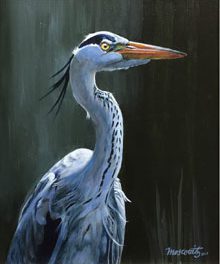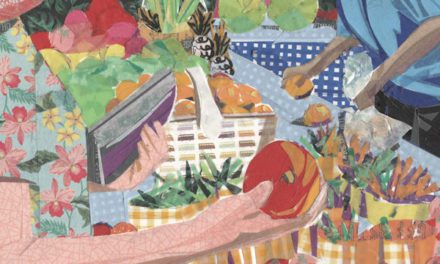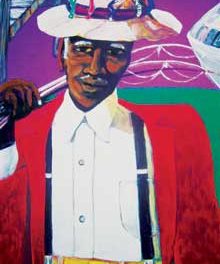 Lowcountry Weekly is pleased to announce the winners of the 9th Annual Sea Island Spirit Writers Short Story Contest. This year, the participants were asked to include the word “alone” somewhere in their story of 750 words or less. There were so many great entries, we’re glad we didn’t have to serve as judges. That challenge, as always, was handled by the Sea Island Spirit Writers, and we thank them for their service. Thank you, as well, to everybody who entered the contest. And a special congratulations to the winners! Please enjoy the prize-winning stories, published below.
Lowcountry Weekly is pleased to announce the winners of the 9th Annual Sea Island Spirit Writers Short Story Contest. This year, the participants were asked to include the word “alone” somewhere in their story of 750 words or less. There were so many great entries, we’re glad we didn’t have to serve as judges. That challenge, as always, was handled by the Sea Island Spirit Writers, and we thank them for their service. Thank you, as well, to everybody who entered the contest. And a special congratulations to the winners! Please enjoy the prize-winning stories, published below.1st Place: A Mother and Son Have a Friendly Chat – Doris Wright (Beaufort)
2nd Place: Foreign Fear – Vivian Bikulege (Brevard NC, formerly of Beaufort)
3rd Place: Tea for Two – Diane C. Rolfe (Beaufort – Distant Island)Honorable Mention
The Choice – Steve Teets (St. Helena Island)
Section Forty-Two – Charles T. Mitchell (McLean VA)
Inspiring – Brad Beck (Beaufort)
A Mother and Son Have a Friendly Chat
By Doris Wright
Hello.
Hello, Ma. I’ve got a problem. A serious one. I need a loan.
Alone? You’re alone? Well so am I. You’ll get used to it.
No, Ma. I need a loan. L O A N.
Who am I talking to?
Your son.
Oh. The one with the MBA from Harvard?
You only have one son.
The one who works at a Wall Street bank?
Yes, for goodness sakes. That one.
The one who hasn’t visited me in a year? Who hasn’t brought my granddaughters to visit? Who didn’t call me on Mother’s Day?
Yesss. That one. Sorry. I’ve been busy. My life’s been hard.
Oh? Hard. Tell me about it. I understand about life being hard. I take 14 pills a day. I can’t walk more than once around the block. My glaucoma is getting worse….
Ma…
….a little heart disease, a lot of irritable bowel…
Oh, for God’s sake! I’m sorry! I’m sorry I’ve been a rotten son. I’m sorry you’re feeling poorly.
Poorly. That’s rich.
Ma, Sheila left me. She took the girls. I’ve been laid off.
Never did like Sheila.
Don’t start…
Didn’t your firm give you severance? A nice, tidy lump sum?
They did. It’s run out. Listen. I need to pay my child support. $4,000 a month. And I haven’t got it. I’ll lose my visitation, for God’s sake.
Oh, so you like those kids? Wish I knew them better.
Ma!
How can you afford a place to live?
I can’t. I live with a friend.
Oh ho!
What does that mean?
Then you’re not alone. A woman, perhaps?
Why does that matter?
So that’s why that gold digger Sheila left you?
Look, Ma. Will you help me, or not? I’ll pay you back.
When?
When I’m back on my feet. Just a measly $4000. That can’t mean much to you.
You’re up on my finances, I see.
I know what dad left you. I was the executor, remember?
Yeah, I remember. And what did he leave you?
Some of his investments. Stocks, bonds…
And?
His car.
And?
The family vacation house.
The one on the ocean?
That was the only one. You know all this stuff. Why are you torturing me?
Tell you what. I’ll give you the money.
Thank you thank you thank you! Can you mail it soon?
No. I don’t trust the mail. I’ll hand it to you.
What?
You heard me. You come here and I’ll hand it to you.
But…
And bring the girls.
Foreign Fear
By Vivian Bikulege
Odette was lost. She’d traveled hundreds of miles to Turkey on a pilgrimage to learn more about the roots of her religion. Instead, she was stranded and alone at an archeological site in downtown Izmir. The tour bus was gone. Now what?
There was no reason to panic. Odette had her cellphone and she knew the name of her hotel. She would find her way. It’s what she did. What she wasn’t sure of was her safety. This part of the city had become a haven for needy refugees and the tour guide had warned the group to hold on to their money and passports. Odette didn’t speak any language but English. She was rarely fearful but somehow this was different.
Before she ventured from the historic site, she paused in the garden to collect herself. She knew her resolve disappeared under the strain of fear and fatigue. Quiet, meditative breathing was her best course of action before she ventured into the city.
Closing her eyes, Odette imagined living in 400 BC. The Greeks built this ancient city, and she sat where people gathered for politics, shopping, worship, sport, and art. It was the heart of a civilization devastated by an earthquake, rebuilt by the Roman Emperor Marcus Aurelius, and disappeared again until 1933 when it was excavated by archeologists. Now, a small black dog lived in an earthen alcove under a Doric column while another dog stretched and slept on the fallen archway of a marble entrance gate.
In the ruins, Odette seized up in sadness. Why had she come here? She didn’t like to travel in groups but she’d been unsure of how she would navigate in a country whose language and culture were so different from her American roots. Knowing this, she decided to let go of her independent nature and follow a guide. But she’d lingered too long in the water closet – Turkish for bathroom – and was left behind.
Odette took another deep breath. I came here because I am lost in America too, she thought. My parents have passed. I never married and have no children. My brother and sister live in other states. I have a few friends but mostly, I keep to myself. I want adventure but I am 65 and my body has begun to betray me – arch supports, knees that buckle, and eyes that require glasses and saline drops.
The small dog walked up to Odette and sat at her feet. She remembered something a fellow traveler said to her when they visited the ancient city of Ephesus the day before. Odette shared that she wished she’d brought dog treats to offer a bit of food to the strays. “Maybe what they want is a different kind of nourishment,” the man offered.
Odette bent forward from her granite seat and scratched the dog’s head. He lifted his head and she let her fingers travel from his skull to the tip of his slim nose. She moved her other hand and began to travel the length of the dog’s bony spine making small circles. She was gentle and thoughtful in how she touched the animal and the dog was accepting of her slow attention leaning into her calves. They could have been anywhere…in Turkey, in America, or on another planet. In that brief moment, sitting on rock from a forgotten civilization, it was Odette and this dog, together and separate, silent but in communion through touch.
“I have to go now little one.” She caught herself speaking out loud and wondered how many different languages this dog had heard. It didn’t matter. It wasn’t words but touch. It wasn’t sound but these few minutes of lingering that moved her from fear to resolve.
Odette gave the pup a few gentle taps between it’s ears and stood. She typed the name of her hotel into Google Maps, tapped the walker symbol, and moved toward the exit. She wasn’t really lost. She was just a bit uncertain in this last quarter of her life.
Moving into the street, she reversed her backpack to the front of her body. She navigated boulevards and crosswalks beside strangers. Between cafes and shops, the aroma of fresh bread mixed with secondhand smoke charged her senses. Odette was smiling. She’d overcome fear. She’d reached out and been fed by a Turkish dog willing to be touched.
Tea for Two
By Diane C. Rolfe
One ordinary day, a teenage waitress met an elderly man. She noticed that his tailored black suit accentuated the dark circles under his eyes.
The man was alone and requested a quiet table, saying he was early for a Service and gesturing toward the funeral home across the street.
“Sorry,” the teen’s voice was quiet, almost reverent. A vacant stare met her sympathetic glance. She led him to a booth in the back corner. “Will you have time for breakfast?”
He shook his head. “Just tea, please.”
“Right away, sir.” She picked up the menus and extra silverware. No eye contact; no small talk.
Returning with steaming water and a box of assorted teas, she left him with his thoughts and the check. He flipped it over, reading “On the House — Kara”
He was gone within a few minutes. “Thank you. I appreciate your kindness.”
Late that night, Kara revisited the brief encounter. Still aching from a devastating loss of the grandfather who raised her, she envisioned this bereft stranger, struggling to put one foot in front of the other in the emptiness.
Been there, done that.
Some weeks later, the diner door chime got her attention. There he stood — the dark-suited tea drinker, dressed casually and somewhat thinner, but definitely him.
“Lovely to see you, Miss Kara,” he eyed her name tag. “I remember you!”
“I remember you, too, and you don’t even have a name tag!” She raised her eyebrows in a friendly challenge.
“Touché!” He chuckled, extending his hand. “Oliver Baird. Friends call me Ollie.”
Ollie became a regular, ordering tea and the breakfast special while he worked his daily crossword puzzle. He always sat in Kara’s section.
The hustle and bustle didn’t seem to disturb his concentration. Once when Kara breezed by with a tray for another table, she asked if he needed anything else and he swapped his fork for a pencil, saying “YES, a 7-letter word for Lady Gaga’s given name. Ends in I.”
She answered without missing a beat, “Stefani, with an F.”
“I knew I liked you,” he smiled triumphantly.
With friendly banter, they forged an alliance. She invariably enlightened him on pop culture clues and he revealed each puzzle’s mystery theme with great fanfare.
In time, he told her about his lifelong love, laid to rest the day he first came into the diner. His wife’s name was Bonita and he called her “Bonny Bonnie,” loving her at first sight. She was a wordsmith with a competitive streak, and from the first date, their passion was solving crossword puzzles, side by side, over cups of tea.
“It sure is different, deciphering them by myself.”
Kara understood. “Not everyone who’s alone feels lonely, but everyone who’s lonely sure feels alone.”
That stuck with Ollie, and it told him that Kara’s loss was still fresh.
“Working full-time in my gap year has been a good distraction,” she admitted, “and extra shifts give a boost to my savings, if not my social life.”
Kara hoped to attend the local college come Fall, but confessed that her application essay was daunting.
“Finding a topic is like solving a puzzle,” Ollie told her.
Kara wasn’t entirely convinced, but what ultimately sparked her imagination was a conversation they had about her grandfather as a parent. Having no children, Ollie was fascinated, and especially curious about Kara’s education.
“Grandpa taught me to think by playing chess and poker,” she beamed. “To build my vocabulary, we had crossword puzzle races with separate copies of the newspaper to see who finished first.”
“So, that’s why you’re so quick!” Ollie teased her with a wink.
She cleared his table in one fluid motion. “Maybe. I know I did NOT like losing.”
“Aha — I’m not surprised!”
With that, her essay on Healthy Competition took shape. She addressed social media fixation and the culture of comparison, then highlighted the value of positive role models and self-motivation. Her application was accepted, pending financial aid.
On another ordinary day, Oliver Baird had an appointment.
He was right on time for his meeting with the University Bursar.
“Professor Baird, good to see you again. How can I help?” His former associate stood to greet him.
“I’d like to understand the procedure for paying a future student’s tuition bills,” he answered, pulling out a checkbook and silently thinking: “On the House, Kara.”







